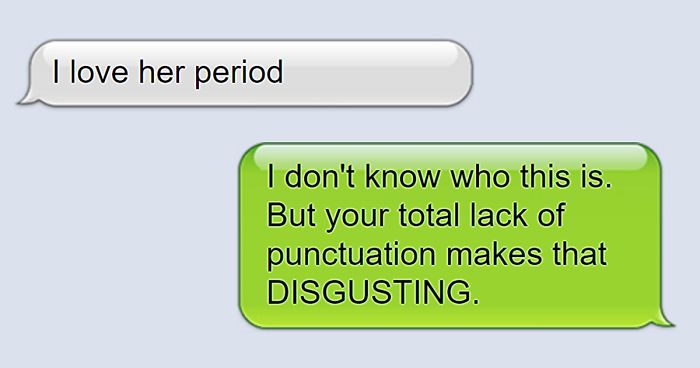Why is writing no longer honored?
There’s trouble in communications, in an age of acceleration, when a simple message error can mean the difference between life and death.

Air traffic controller: GIA 152, turn right heading 046 report established localizer (report when you have intercepted the ILS radio beam).
Pilot: Turn right heading 040 GIA 152 check established.
Air traffic controller: Turning right sir.
Pilot: Roger 152.
Air traffic controller: 152 Confirm you’re making turning left now?
Pilot: We are turning right now.
Air traffic controller: 152 OK you continue turning left now.
Pilot: A (pause) confirm turning left? We are starting turning right now.
Air traffic controller: OK (pause) OK.
Air traffic controller: GIA 152 continue turn right heading 015.
Pilot: (scream) Allahu akbar!

Now imagine a similar mix-up in writing. Poor communications skills in the workplace can cost time, money – and careers.

The easiest target to blame is the internet, where rotten writing abounds – at least in English, and for the purpose of this short plaint we’ll confine our study to just two languages: English and Bahasa Indonesia, since West Java is the home of Ya Udah Bistro, where all you have to read is a revised and expanded menu (fresh meat loaf and home-made sausages available once again, after a long wait!).

In these hyper-competitive times, a university education is supposed to impart sufficient life-skills to a young person to enable them to qualify for an appropriate professional position; alas, these days, many college graduates in English-speaking countries are simply unable to compose a simple essay. Four or five productive years gone, several hundred thousand dollars in debt and a basic communication skill is just not there.
Author Jeff Selingo elaborates his lament with surprise and consternation:
A few months ago I was having breakfast in downtown Washington. I couldn’t help but overhear a casual job interview happening at the table next to me. The interviewer owned a government contracting business and was looking to hire a person to help write proposals to federal agencies.
Near the end of the conversation, the interviewer complained about how difficult it is to find good writers these days. The two men talked about their college experiences and how they learned to write.
“I was a math major,” the interviewer said, “but the biggest differentiator in business now is good writing.”
He’s not alone in his opinion. According to national surveys, employers want to hire college graduates who can write coherently, think creatively and analyze quantitative data. But the Conference Board has found in its surveys of corporate hiring leaders that writing skill is one of the biggest gaps in workplace readiness.
That’s why so many employers now explicitly ask for writing and communications skills in their job advertisements. An analysis by Burning Glass Technologies, which studies job trends in real time by mining data from employment ads, found that writing and communications are the most requested job requirements across nearly every industry, even fields such as information technology and engineering.
“My students can’t write a clear sentence to save their lives, and I’ve had it,” Joseph R. Teller, an English professor at College of the Sequoias, wrote in the Chronicle of Higher Education in the fall. “In 10 years of teaching writing, I have experimented with different assignments, activities, readings, approaches to commenting on student work — you name it — all to help students write coherent prose that someone would actually want to read. And as anyone who keeps up with trends in higher education knows, such efforts largely fail.”
A core competence in any line of business is communication: it keeps the wheels greased and turning smoothly in any business, small or gigantic. And when it gets sand in the gears…

Writing is a core competence in basic workplace communication. If you work in an office you may speak to twenty people a day, on the average. Perhaps on a busy day, or when you are assigned to give a presentation, you may have an audience of fifty to two hundred.

But if you write a press release for your company, that will go out to news media and may be read by millions. This is the power of the written word. Screw that up and pay the penalty.

Should we blame Twitter, Facebook and WhatsApp for such slackness? More to the point would be to blame the speed and convenience of word processors, which enable a busy employee to dash off a note or a report and then send it on its merry way – possibly with career-ending spelling, usage and punctuation mistakes peppered through it. Computer & internet technology can bite back, hard:
An executive at a Manchester recruitment firm was forced to resign after accidentally hitting the “reply all” button. He responded to a mass-mailed job inquiry by a job hunter, but accidentally replied to all 4,000 contacts on the list. He might have survived had it not been for the colourful language he used: “You are too stupid to get a job, even in banking,” he wrote
A Devon schoolgirl’s computer crashed after receiving hundreds of unwanted emails from defence organisations. A Royal Navy officer had mistakenly included her on a mailing list because of a typing error, after which she was plagued by messages, including confidential information from war ministries and defence firms around the world
If you write by hand you are forced to look at what you have written. When you complete a piece of writing it used to be the rule that you would study it, looking for ambiguities, errors of reference, imprecise expressions and poor usage – in addition to the usual mechanics of spelling, punctuation, capitalization and word spacing.

Me, looking at a horribly-written news story in a daily Indonesian newspaper, and asking the writer: “Has this really gone through a couple of drafts?”

He looks at me blankly and asks “What is a draft?”
Me (shocked face): “You mean the news story is printed exactly as you wrote it out the first time, from your notes?”
Journalist (carefree): “I didn’t take any notes. I just remembered what I saw.”
Me (frowning, giving up): “It looks like it” thought but not expressed … no point offending the poor jerk by telling him. It would do no good anyway.
Poor writing skills are as evident with Indonesians as with English speakers. Take journalism. During the 32 years of the Suharto dictatorship it was not a very prized profession. Journalists were poorly trained, paid very little (and usually by the article or word), and had to be quite careful about offending anybody, no matter how corrupt or criminal the person might be.
The joke was about the “Five ‘Ds’ of Indonesian journalism”:

Joke? Only partly. Western journalists working for huge corporate media don’t have it much better. They are often told specifically what to write and how to write it.
But at least they know how to write. Or they have editors who correct their errors.
Being able to communicate accurately, thoroughly and effectively in writing is elemental to success in life – particularly in the worlds of business, technology, medicine, academia and science. Before the dawn of an “Electronic Age” in the early part of the 20th Century fine writing skills were appreciated and rewarded. Educated people read – magazines, newspapers and books. Publishing was a very prosperous and competitive enterprise.
People apparently don’t read that much any longer. If one doesn’t read, how can they learn to write?

The Europeans still prize literacy, at least officially. A document entitled “Declaration of the Right to Literacy”, published by the European Literacy Policy Network, or ELINET, states in a forthright manner:
Literacy as a basic right Everyone in Europe has the right to acquire literacy. European Union Members, candidates and associate States should ensure that people of all ages, regardless of social class, religion, ethnicity and gender, are provided with the necessary resources and opportunities to develop sufficient and sustainable literacy skills and knowledge in order to effectively understand and use written communication in print and digital media.

Even the hyper-efficient Germans are wailing about the clumsy writing of their students.
Skill in reading and writing a language correctly will clearly be influenced by the inherent difficulty of the language. Thus, Spanish children learn to read and write more quickly than French children, because these little native speakers know that certain letters of groups of them correspond precisely to spoken words, whereas in French (or English, for that matter) this is frequently not the case. Children thus struggle against the inconsistency of illogical spelling and grammar (such as irregular verbs).
These days it seems many Millennials simply do not care to learn to write accurately – to their detriment.
Here’s an example of carelessness in communication, taken from a “Comments” section on a blog:
“One of my best friends mother thinks this(her reason is she is of mixed race/color and she has had to deal with the racist crap that comes with it so she thinks people shouldn’t be having mix race/color kids and make have to go threw it).”
Where to start with this? Check out the errors:
“One of my best friends mother thinks this (her reason is she is of mixed race/color and she has had to deal with the racist crap that comes with it so she thinks people shouldn’t be having mix race/color kids and make have to go threw it).”
Chances are that if you pointed out these errors to the writer he or she would retort “Whatever. It doesn’t matter – you know what I mean, don’t you?”
Well, sort of. But when it is expressed so clumsily it becomes hard to take seriously.
“The mother of one of my best friends thinks this way (her reasoning is that she herself is of mixed ethnic background, and since she has had to deal with the racist crap that comes with such an environment, she thinks no one should have mixed-race kids, who will have to go through similar difficult confrontations).”
There. You’re welcome. Fixed it for you. Is that so hard? Not if a writer forces himself to study what he has written before uploading it to the World Wide Web.
Employees think more highly of their writing abilities than their managers do. This is because when Millennials write they love to repeat points over and over again. Yes, we understand you had a good point but the reader did not need to hear about it three times in one paragraph. To be a concise writer you must avoid redundancies. This means no word repetition even if you are using synonyms. The point will still be the same idea no matter how you word it. Writers must avoid complex sentences. Complex sentences only confuse the reader or turn them off from the writing.
Then again you can point a finger at “the system”. If teachers haven’t been trained to teach language correctly, how can they convey such skills to their students?
Lead author Claire Wyatt-Smith, the director of the Institute for Learning Sciences and Teacher Education at ACU, said the results showed teachers needed more training and support.
“The craft of writing is complex,” she said. “One of the key things we all recognise is sadly many teachers have gone through their own education without explicit knowledge of grammar. So when a student says, ‘How do I improve this sentence, what’s wrong with it?’ teachers are not always well equipped to have that knowledge.”
Half the teachers surveyed had spent between one and five hours teaching writing in the fortnight before the survey, while a quarter spent less than an hour on it. Four per cent said their students never did writing for an extended period of time.

Well there you go. And here you come, to pick up your tasty Takeaway / Takeout meals from YaUdah Bistro Menteng, where we are unfortunately not accepting the sit-down trade at the moment (PSBB back in action again, Jakarta locked down to smother the pandemic). Don’t neglect to order freshly-homemade sausage and meat loaf, available after a lengthy time.

Or tootle over to our great fancy branch in Serpong, where you can not only sit down but have your choice of a smoking area (outside in the smoky air of Jakarta DKI) or in our pleasantly cool air-conditioned section indoors.



